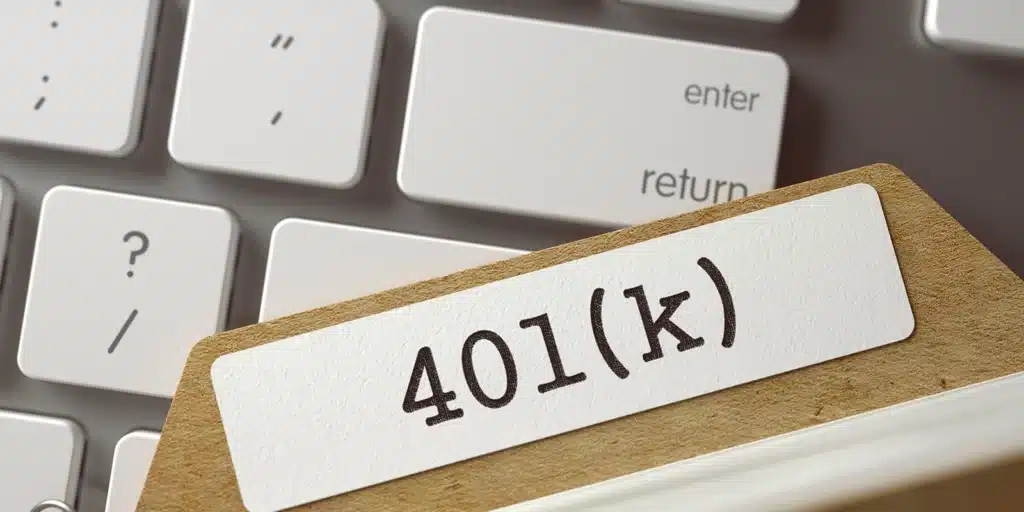Should You Pay Off Debt Or Save For Retirement?
Posted on May 28, 2021 in Debt
If you’re wondering how to choose between paying off debt or saving for retirement, then take a look at our step by step guide to help you decide.
Financial planning is all about priorities. Your life-long financial goals represent what’s most important to you, whether that’s building a family, starting a business, traveling, owning a home, or a variety of other prospects. However, it can be challenging to choose which priority should come first. One common quandary we see is the question, “Should I pay off debt or save for retirement first?” These are both important financial goals, but ultimately, you must prioritize paying off debt. Your retirement plan assumes you’ll have a fixed income. Debt threatens your security in retirement. See how to give yourself a strong financial foundation by learning how to pay off debt and save for retirement.
Table of contents
How To Pay Off Debt And Save For Retirement
Taking care of your debts and saving for retirement are both important financial goals. The emotional side of money management can also play a big part in these decisions. Both debt and the idea of an unfunded retirement are scary concepts. Many people struggle to make wise, informed decisions on these subjects, and it can be difficult to determine if you should pay off debt or save for retirement first. However, there are proven strategies you can employ to both pay down debt and put money aside for the future.
Evaluate Your Budget To Increase Saving
You need to understand your current financial situation before you can make any new plans to pay off debt or save for retirement. Take a look at your current budget to identify places you can save money. This can be a way to uncover funds you already have. Here are some common suggestions for budget lines you may be able to cut, combine, or reduce.
- Subscriptions such as shopping memberships, streaming videos, fitness accounts, and more
- Add-on services or upcharges you don’t use
- Restaurant and take-out spending
You can also brainstorm ways to reduce the cost of your lifestyle without cutting back on your enjoyment.
- Purchase previous model electronics instead of the latest version
- Shop consignment or resale shops for clothing
- Prepare more of your food at home
- Reduce utility usage
- Contact companies you’ve used for years and ask for a lower rate
Make A Debt Repayment Plan
After evaluating your spending, it’s time to consider your debts. Collect the details on any debts you owe. Student loans, car payments, credit cards, mortgages, medical debts, rotating lines of credit, and even no-interest payment plans should be included.
Facing your debts can feel overwhelming, but this step is an important part of your financial future. You’ll be able to adjust and adapt once you have a clear understanding of your situation.

Make notes on the important information about each account, including:
- Name
- Total amount owed
- Interest rate
- Minimum monthly payment, if applicable
- Term or length of the loan, if applicable
Pay Down High-Interest Rate Debt First
You can make a big impact, fast, on your debt by paying down your high-interest accounts first. Interest is the fee you pay lenders in exchange for using their money. When you have a high-interest rate, that means that you’re paying more for this debt than you are for other accounts. Credit cards can often have high-interest rates, but you might face this problem with other debts as well.
Prioritize paying off the account with the highest interest rate first. Once that account is cleared, you can put additional money towards paying off the next highest rate, then continue until all your accounts are handled.
For more information on credit card debt and the like, be sure to check out our guide on which payment method typically charges the highest interest rates.
Save For Retirement And Maximize Your 401(k) Contributions
A 401(k) is a retirement account where you can direct money from your paycheck before taxes. Any money you add to your 401K is excluded from your current tax responsibility. Most people with a 401(k) have one through their employer, although there are ways for freelancers, self-employed people, and contract employees to create a retirement account as well.

If your employer offers a 401(k), they may also offer matching contributions through the program. In these cases, employers will match the money you put into a 401K up to a certain amount. For example, if your employer offers a 10% 401(k) match, they will match your 401(k) contributions up to 10% of your income. These programs are essentially free money and are a powerful investment in your future.
Is it better to pay off debt or contribute to a 401(k)? You shouldn’t take on new debt to fund a 401(k). Once your debt plan has reached the point that you’re not taking on more debt each month, you should take advantage of your employer matching 401(k) program. Your next goal can be fully funding your 401(k) each year. You may also consider using something like the Nerwallet retirement calculator to help you determine how much you need to be saving.
Start An Emergency Savings Account
Stash away emergency funds to help the next time an unexpected expense comes up. Ideally, you want six or twelve months of income in an emergency account. This cushion will protect you from medical emergencies or losing a job. However, your first goal can be funding a $1000 emergency fund, which will still be a great help in many situations.
Talk To A Financial Advisor
Money is a complicated, emotional subject. If your situation seems especially confusing or causes too much stress for you to tackle on your own, a financial advisor can help. Book an appointment with a reputable financial advisor to explore more options on everything from saving and stock market investing to debt consolidation.
Bottom Line: Should You Pay Off Debt Or Save For Retirement?
Is it better to have savings or pay off debt? As with many financial questions, the answer to this question is complex. Some debt can be useful. For example, taking on a mortgage with a low rate can set you up for a lifetime of homeownership. On the other hand, debt can feel crushing when you’re facing high amounts owed, high-interest rates, or both.
The Pros Of Paying Off Debt First
There are several advantages to paying off your debt before tackling other financial goals.
- Paying off debt improves your credit history, possibly leading to a higher credit score that opens up more avenues.
- When debts are paid, you have more money to spend on other goals.
- You’ll enjoy the mental and emotional relief of being debt-free.
The Cons Of Paying Off Debt First
However, your finances are complicated, and paying off your debts can have negative aspects as well.
- Debts with low rates or zero interest don’t have a large financial burden. When you carry low- or no-interest debt, you can put other funds into savings or investment accounts with higher interest rates.
- You may struggle with worry and anxiety about the future when you don’t prioritize savings.
To pay off debt, consider debt settlement or consolidation.
If your debt is causing you problems, look into debt settlement or debt consolidation programs. These services allow you to pay off multiple accounts, often by taking out a new loan at a better rate. You can streamline your current debts, plus make it easier to save for the future and long term. Explore debt consolidation programs as a useful tool for your financial outlook.
Pay Off Debt & Save for Retirement Today
Related blog posts
Need expert financial advice?
Let TurboFinance connect you with the best consulting services and resources to help you take control of your finances and find a path to build wealth.
Get A Free Consultation Today!